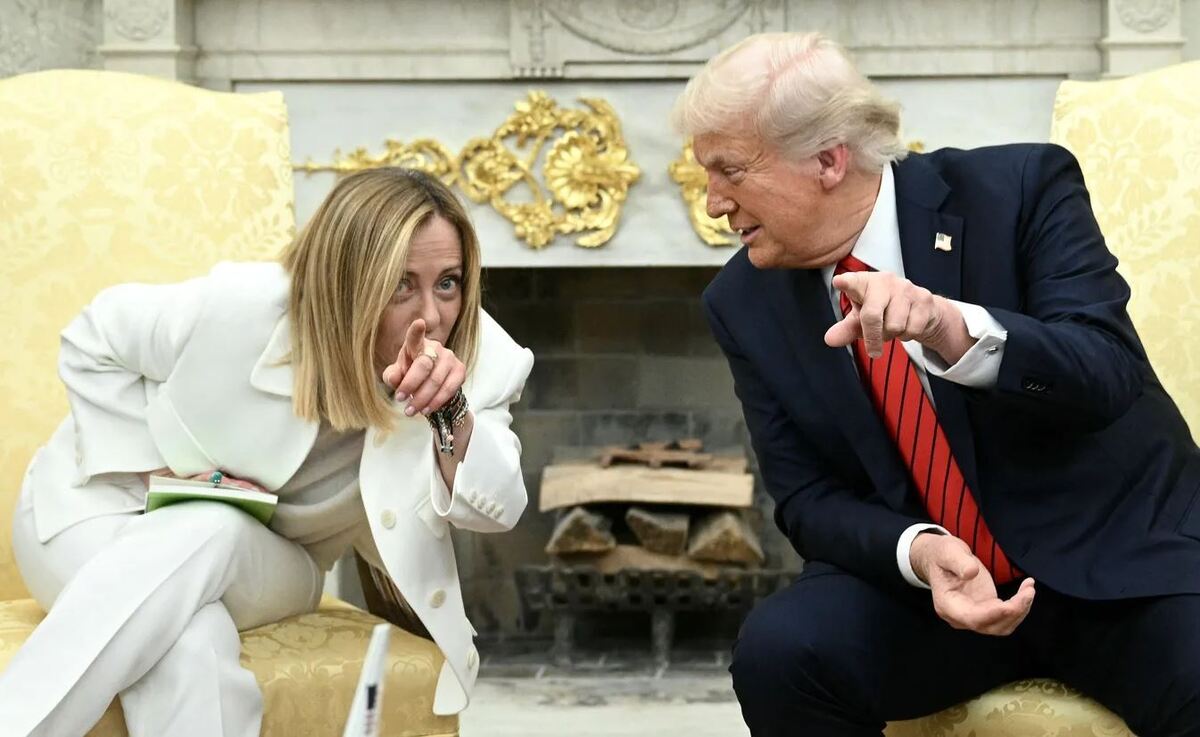Decoding the joint Rome-Washington plan

The relationship between Giorgia Meloni’s government and Trump remains close. Some European affairs analysts believe that the current far-right nationalist government in Rome, alongside Viktor Orbán’s government in Hungary, maintains the closest ties with the current U.S. administration among other European countries.
During the November 2024 U.S. presidential election, Hungary and Italy made no secret of their desire for the defeat of Kamala Harris, the Democratic Party candidate. Ultimately, Trump’s victory has created relatively ideal conditions for Budapest and Rome within the European Union, as these two actors now enjoy greater political security in Europe with the backing of the White House.
EU member states, despite their dissatisfaction with Trump’s policies, have no choice but to rely on the close relations of Orbán and Meloni with Trump to address certain economic and security crises with Washington.
Recently, news has emerged regarding increased interventionism by the Meloni government in the Ukraine war. Italy, which has repeatedly been accused of reducing support for Ukraine, now plans to deliver 400 M113 armored personnel carriers to Kyiv. Although these armored vehicles were built decades ago, their updated versions still perform effectively.
Kyiv now expects to receive a significant military aid package from Rome. The newspaper Il Messaggero, citing statements from Guido Crosetto, Italy’s Defense Minister, reported that Italy is set to deliver 400 M113 armored personnel carriers to Ukraine. According to the report, Italy will also provide a satellite surveillance system to the Ukrainian army.
According to Il Messaggero, despite the age of the M113, Ukrainians still rely on it due to its high capability to navigate forests and rugged terrain. This military personnel carrier, first used by the U.S. Army during the Vietnam War, has since been improved and updated.
What is significant in this context is the subtext and true intent behind the Italian government’s decision to fuel the Ukraine war. Although Trump has repeatedly expressed opposition to escalating the Ukraine conflict and even proposed a permanent ceasefire plan to the parties involved, Italy’s recent decision appears to contradict this White House approach.
A prominent hypothesis is that Meloni did not make this decision without consulting Trump! In other words, Trump intends to send an indirect message to the Russians at this juncture: that his allies in Europe will not indefinitely play in Moscow’s favor (to facilitate the U.S.-proposed ceasefire).
Russia is undoubtedly aware of the nature of this move by the Italian government and the behind-the-scenes role of the U.S. administration in this controversial decision. We must await Russia’s behavioral, informal, or even official response to this matter.